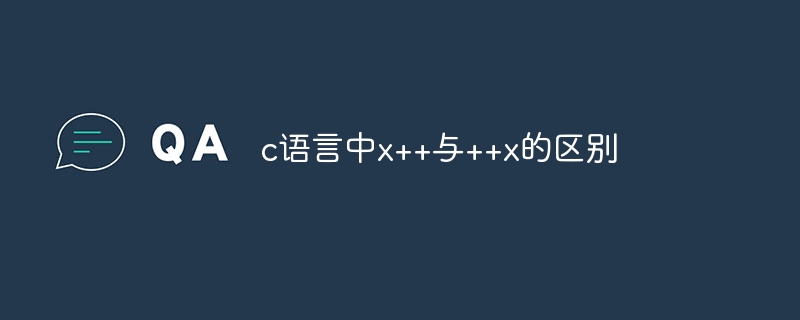
The difference between x and x in C language lies in the operation timing and return value: x (post-increment): Get the original value of x and then increment it, then return the original value. x (prefix increment): Get the value after incrementing x, and return the incremented value.

The difference between x and x in C language
In C language, x and x are two suffixes Increment operator, used to increment the value of variable x. However, they differ in the timing of increment operations.
x (post-increment):
Execution example:
int x = 5; int y = x++; // y = 5 (临时变量中复制的值) // x = 6 (自增后的值)
x (prefix increment):
Execution example:
int x = 5; int y = ++x; // y = 6 (自增后的值) // x = 6 (自增后的值)
Difference summary:
| Operation Symbol | Timing | Return value |
|---|---|---|
| x | Postfix | x Value before operation |
| x | preceded by | x Value after operation |
Application scenario:
Post-increment (x): When it is necessary to obtain the original value of a variable before using it, for example:
int x = 5;
printf("%d\n", x++); // 打印 5
// x = 6Prefix increment (x): When the value of a variable needs to be updated immediately after using it, for example:
int x = 5;
printf("%d\n", ++x); // 打印 6
// x = 6The above is the detailed content of The difference between x++ and ++x in c language. For more information, please follow other related articles on the PHP Chinese website!




